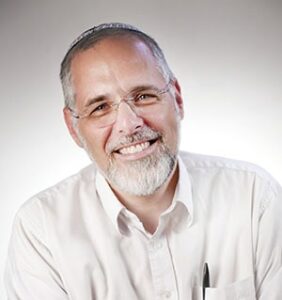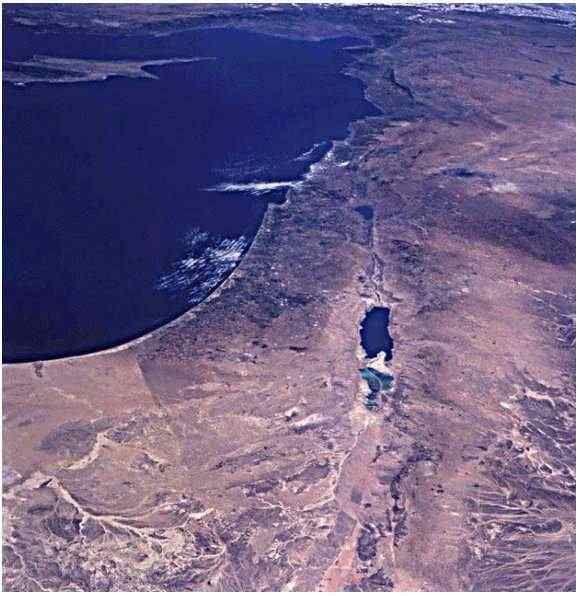NOACH
by Rabbi Moshe D. Lichtman (toratzion.com)

THE FLOOD AND ERETZ YISRAEL
What connection could there possibly be between this parashah and the Holy Land? Seemingly, the flood affected the entire world, as the verse says, Everything that was on dry land died (7:22). Furthermore, this is essentially a universal parashah. It deals mainly with the father of mankind (hence, the seven universal laws are called “the Noachide Laws”), not the fathers of the Jewish People. So what could it have to do with the Land of the Jews?
The answer is that, as we saw last week, God designated Eretz Yisrael as a special Land even before the Jewish People came onto the scene of history. In Parashat BeReishit this was demonstrated by the fact that all of creation started here, but how do we see this in Parashat Noach? The Talmud (Zevachim 113) records a dispute between R. Yochanan and Reish Lakish as to whether the flood affected Eretz Yisrael. Both base their opinions on a verse in Yechezkel (22:24) – בן אדם אמר לה, את ארץ לא מטהרה היא, לא גושמה ביום זעם. R. Yochanan, who holds that the flood did not strike Eretz Yisrael, interprets the verse rhetorically, Son of man, say to her: Are you an impure Land [from the bodies of those who died in the flood]?! [Of course not], it did not rain upon you on the day of fury. Reish Lakish, however, translates it as follows: …You are an impure Land. Did it not rain upon you on the day of fury?! The Gemara concludes that even R. Yochanan admits that the living creatures in Eretz Yisrael died, as it says, Everything that was on dry land died. According to him, though, they did not die from the water, rather from its heat. (It is well known that the water of the flood was boiling hot.)
Interestingly, the Midrash quotes only R. Yochanan’s opinion. In two places (BeReishit Rabbah 33:9 and VaYikra Rabbah 31:8) the Midrash asks, “Where did the dove find the olive leaf?” Two Amora’im answer that he found it in Eretz Yisrael (the second one giving a specific location – Mt. Olives): “For the flood did not affect Eretz Yisrael.” (A third opinion states that he found it in the Garden of Eden.)
Nevertheless, R. Yochanan’s opinion seems to contradict an explicit verse in the Torah: All the high mountains which were under the entire heaven were covered (7:19)? All the commentators of the Midrash quote the Ramban’s answer to this question:
When Chazal say that the flood did not affect Eretz Yisrael they mean that the rain did not fall there… and the fountains of the deep did not open up there. However, the water spread throughout the entire world and covered all the high mountains… [After all] there is no gate surrounding Eretz Yisrael to prevent the waters from entering! Pirkei DeRebbe Eliezer similarly states: “The flood waters did not come down upon Eretz Yisrael from the heavens. Instead, the waters rolled from the other lands into it…”
The Ramban goes on to explain that since the powerful rains did not fall in Eretz Yisrael, the trees survived. Hence, the dove was able to find an olive leaf there. Tosafot explain that it is still possible to say that Eretz Yisrael was not affected at all (see Zevachim 113a, s.v. lo yarad.)
In any event, it is clear that according to most opinions the affects of the flood were less severe in Eretz Yisrael. The only question that remains is, why? Why should this Land be spared the wrath of God?
I would like to suggest an answer based on an idea I saw in the name of R. Shneur Zalman of Liadi (the Ba’al HaTanya). He asks: Why did God choose to bring a flood? If His sole intention was to destroy the world, He could have done so in a split second, without all the mess (so to say). The Ba’al HaTanya answers that God’s main purpose was to purify the land from its corruption. Therefore, he specifically brought a flood, to serve as a mikveh of sorts. Taking this one step further, I would say that this is why Eretz Yisrael was spared. The Chosen Land is so intrinsically pure and holy that it is virtually impossible to defile or corrupt it. Notice that whenever the Torah talks about the cardinal sins that cause exile, it says that the Land will vomit the sinners out. That is, before they can cause any serious damage, the Land gets rid of them, keeping itself pure. Thus, it is true that the inhabitants of the Land had to be destroyed, but the Land itself retained its intrinsic holiness and did not need to be purified by the mikveh of the flood.
One last point: During these trying times, when students are leaving Eretz Yisrael (usually due to parental pressures) and Jews are canceling trips to the Holy Land out of concern for their personal safety, it is important to remember that the Land of Israel has many merits which might actually make it the safest place on earth.






